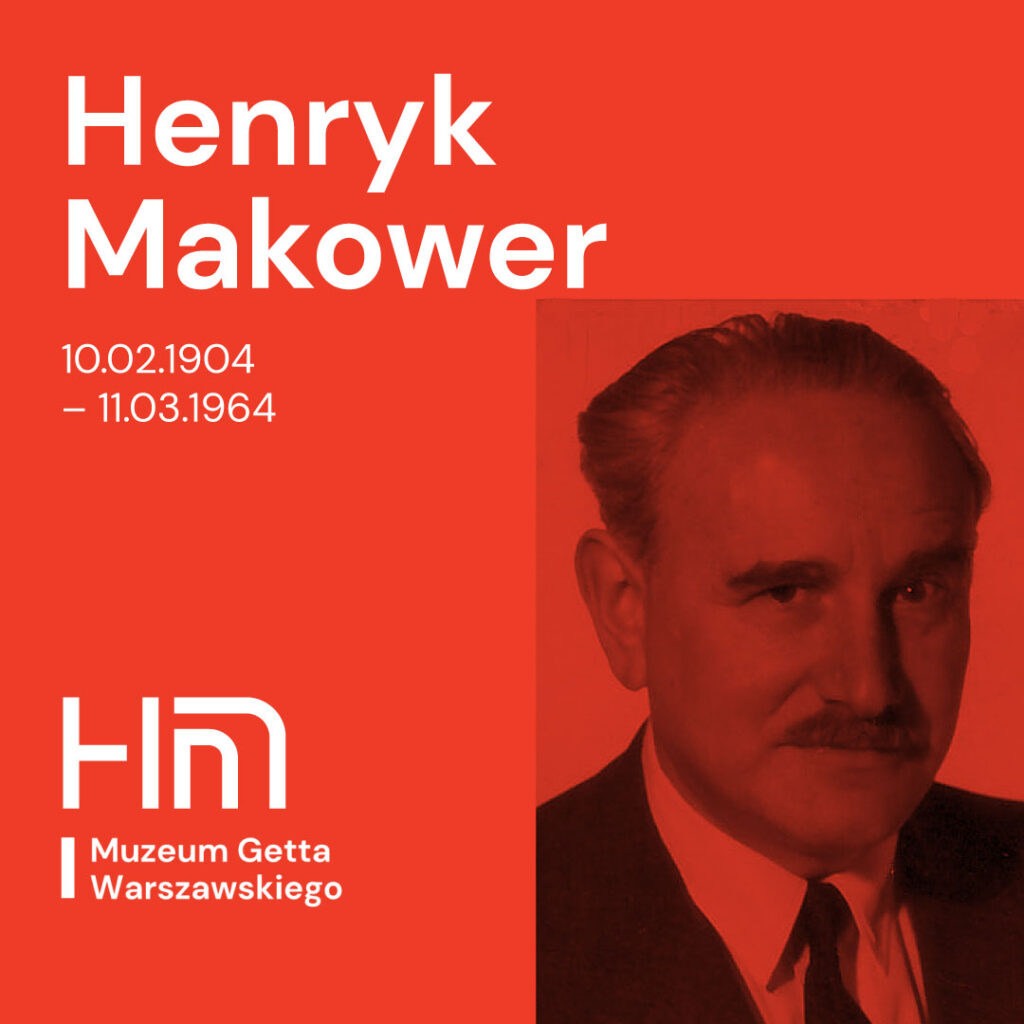Henryk Makower (10.02.1904–11.03.1964)
physician and researcher, head of the Department of Infectious Diseases at the Bersohn and Bauman Children’s Hospital, professor of microbiology at the Medical Academy in Wrocław, head of the Department of Virology at the Institute of Immunology and Experimental Therapy, author of the “Diary of the Warsaw Ghetto, October 1940 – January 1943”

Makower was born in Kalisz to a Jewish family from the eastern borderlands, the son of Gedala and Dora née Lampert. This marriage of his grandparents was also described by Eliza Orzeszkowa in the novel “Eli Makower”. In Kalisz, Henryk graduated from elementary school and then from high school in Łódź. For two years he studied biology in Vilnius, then medicine at Jagiellonian University, receiving his doctorate in 1929. While still a student, he was an assistant at the Department of Physiology and Bacteriology. After graduating in 1931, he completed a course in bacteriology and immunology at the National Institute of Hygiene in Warsaw.
Until the outbreak of the war he worked as an internist in city hospitals and an ambulance service in Łódź. Then he moved to Warsaw, where he was transferred to the ghetto. He took the position of head of the infectious diseases department at the Bersohn and Bauman Children’s Hospital. There he participated in the fight against the typhus epidemic, and thanks to the cooperation and friendship with Ludwik Hirszfeld, he was able to hold physiology courses for physicians and pharmacists at the secret medical department of the Warsaw ghetto (officially the courses were called “Sanitary Course for Combating Epidemics”). During the so-called Wielka Akcja he lost his entire family; at the same time he married Noemi Wigdorowicz, with whom he fled to the so-called Aryan side in the winter of 1943. With the help of Dr. Emil Paluch, the couple hid with friends in Miłosna near Warsaw. In August 1944, Makower volunteered for the Polish Army in Lublin and, as a captain, became head of the internal and infectious diseases department in a military hospital. Until the end of the war he worked in hospitals in Otwock and Gdańsk-Oliwa.
In 1946, at the invitation of Ludwik Hirszfeld, he accepted a position as assistant professor in the Department of Microbiology at the University of Wrocław. As a Rockefeller Fellow, he went abroad several times for research visits, including to the USA, to study virological research methods. The result of these trips was the virological laboratory he founded at the Department of Medical Microbiology of the University of Wrocław. It became the basis of the Department of Virology of the Institute of Immunology and Experimental Therapy of the Polish Academy of Sciences. In 1959 he was appointed by the World Health Organisation as an expert in virology in Geneva. He died on 11 March 1964 in Wrocław.

